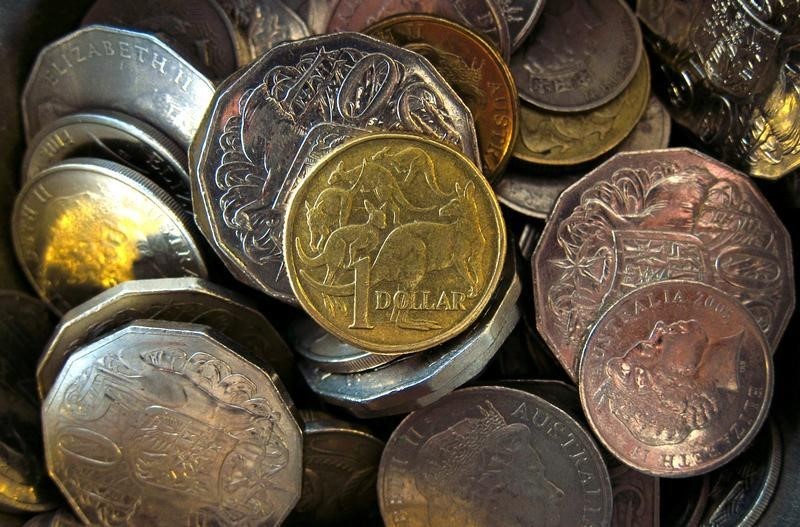By Wayne Cole
SYDNEY, March 18 (Reuters) - The Australian dollar was ravaged on Wednesday after toppling to 17-year lows as fears of a coronavirus-induced global recession sent investors fleeing from risk assets and commodities, with panic selling even spilling over into sovereign bonds.
The New Zealand dollar was also on the ropes at $0.5954 NZD=D3 , having shed 1.7% overnight to the lowest since mid-2009.
The Aussie was pinned at $0.6004 AUD=D3 after sliding 2% on Tuesday to $0.5958, depths not seen since early 2003.
A break below the 2008 low of $0.6007 only reinforced the bleak technical outlook with the Aussie having lost almost seven cents in less than two weeks.
"Our fair value model of the Aussie that includes relative interest rates, commodities and risk suggests it should be at $0.5700, so there's more room yet," said Ray Attrill, head of FX strategy at NAB.
"The latest weakness also has to be seen in the context of broad based U.S. dollar strength, with the .DXY dollar index back perilously close to its 99.91 February high."
The U.S. currency was lifted by an outsized increase in Treasury yields, which saw 10-year yields US10YT=RR surge 30 basis points in just one session.
Attrill said a raft of investors, including risk-parity funds, were being forced to sell bonds to cover redemptions or losses suffered in equities.
The rush for the exits sent yields on Australian 10-year bonds AU10YT=RR surging to 1.18%, a wrenching turnaround from an all-time low of 0.555% hit just eight sessions ago.
Shorter-dated bonds were supported by expectations the Reserve Bank of Australia (RBA) would cut its cash rate on Thursday and announce plans to buy bonds to keep yields down. bond futures YTTc1 held steady at 99.570, even as the 10-year contract YTCc1 dived 13.5 ticks.
The RBA has been flooding the banking system with cash to ease the strain in bond markets, adding A$10.7 billion ($6.42 billion) on Wednesday.
The Australian government has also flagged another round of fiscal stimulus to try to head off recession.
Bill Evans, chief economist at Westpac, suspects the package will be too little to save Australia from recession and now sees the economy contracting by 1% over the first half of the year.
"We have seen mandatory quarantine requirements for international travellers; restrictions on large public gatherings; a brutal sell off in the global equity markets and reports of limited liquidity in government and corporate debt markets," said Evans.
($1 = 1.6678 Australian dollars) (Editing by Aditya Soni)
